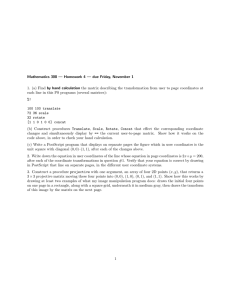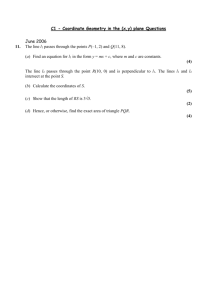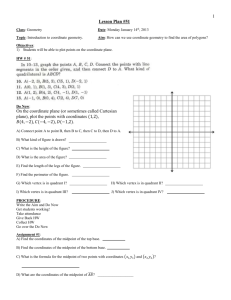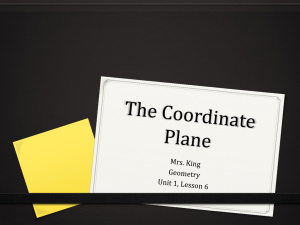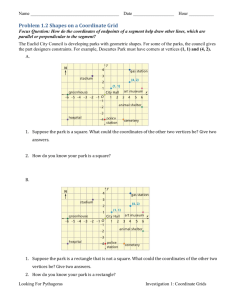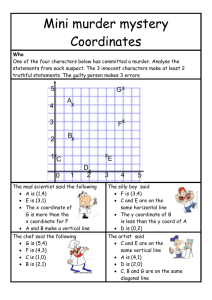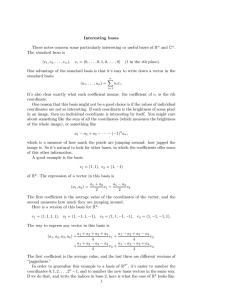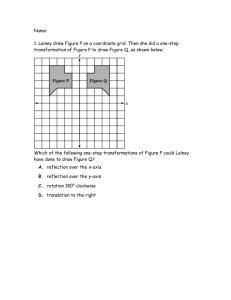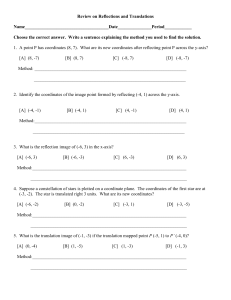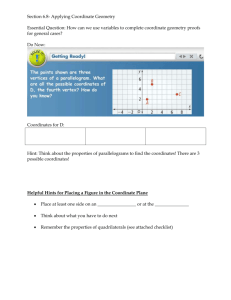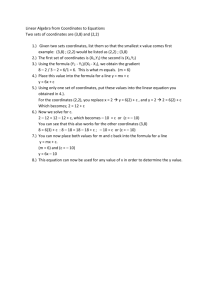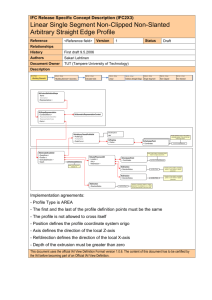Unit 1: Coordinates - Mathematics Mastery
advertisement
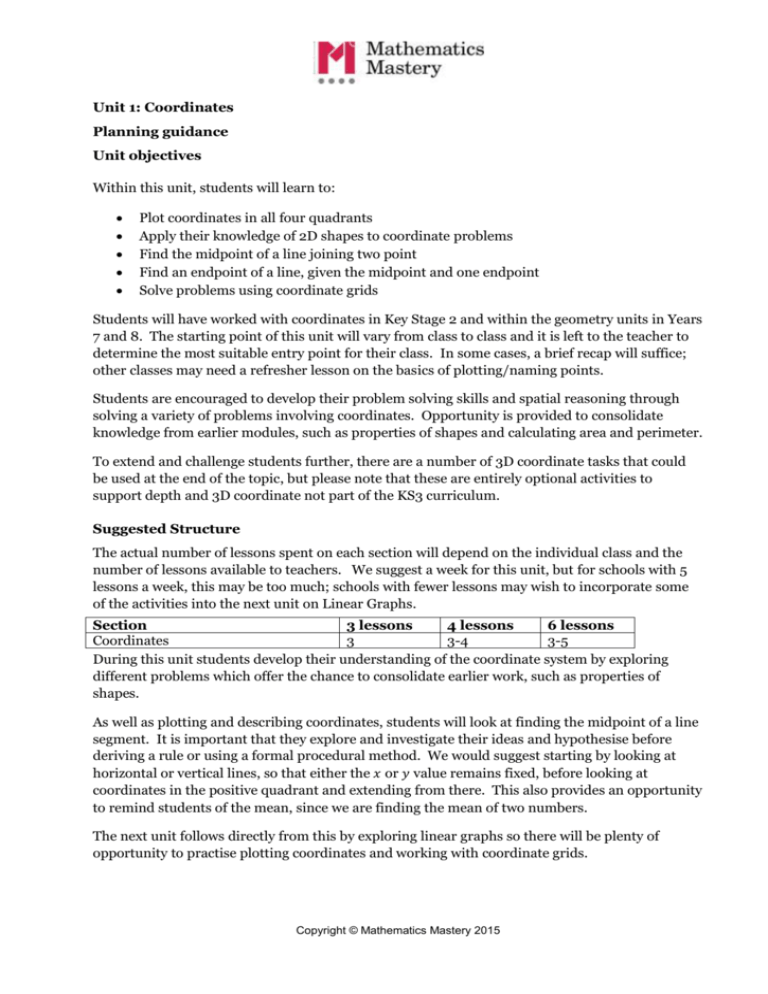
Unit 1: Coordinates Planning guidance Unit objectives Within this unit, students will learn to: Plot coordinates in all four quadrants Apply their knowledge of 2D shapes to coordinate problems Find the midpoint of a line joining two point Find an endpoint of a line, given the midpoint and one endpoint Solve problems using coordinate grids Students will have worked with coordinates in Key Stage 2 and within the geometry units in Years 7 and 8. The starting point of this unit will vary from class to class and it is left to the teacher to determine the most suitable entry point for their class. In some cases, a brief recap will suffice; other classes may need a refresher lesson on the basics of plotting/naming points. Students are encouraged to develop their problem solving skills and spatial reasoning through solving a variety of problems involving coordinates. Opportunity is provided to consolidate knowledge from earlier modules, such as properties of shapes and calculating area and perimeter. To extend and challenge students further, there are a number of 3D coordinate tasks that could be used at the end of the topic, but please note that these are entirely optional activities to support depth and 3D coordinate not part of the KS3 curriculum. Suggested Structure The actual number of lessons spent on each section will depend on the individual class and the number of lessons available to teachers. We suggest a week for this unit, but for schools with 5 lessons a week, this may be too much; schools with fewer lessons may wish to incorporate some of the activities into the next unit on Linear Graphs. Section 3 lessons 4 lessons 6 lessons Coordinates 3 3-4 3-5 During this unit students develop their understanding of the coordinate system by exploring different problems which offer the chance to consolidate earlier work, such as properties of shapes. As well as plotting and describing coordinates, students will look at finding the midpoint of a line segment. It is important that they explore and investigate their ideas and hypothesise before deriving a rule or using a formal procedural method. We would suggest starting by looking at horizontal or vertical lines, so that either the 𝑥 or 𝑦 value remains fixed, before looking at coordinates in the positive quadrant and extending from there. This also provides an opportunity to remind students of the mean, since we are finding the mean of two numbers. The next unit follows directly from this by exploring linear graphs so there will be plenty of opportunity to practise plotting coordinates and working with coordinate grids. Copyright © Mathematics Mastery 2015
